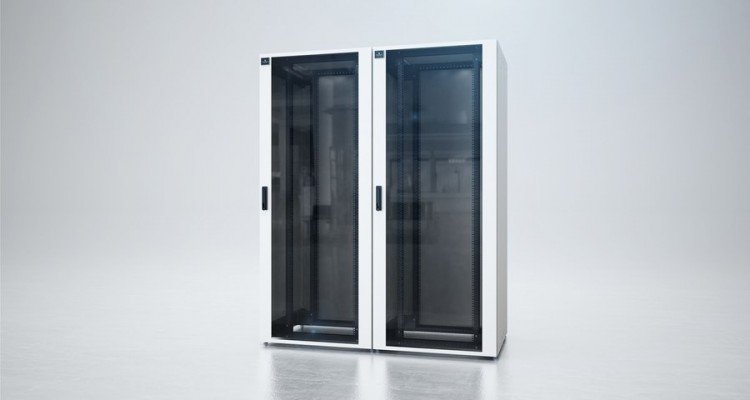American infrastructure specialist Emerson Network Power has launched a family of 19-inch modular rack units dubbed InstaRack, for their ability to be deployed in under 30 minutes.
The racks ship partially assembled, and their flat-packed design minimizes transport and storage requirements.
InstaRack for networking equipment is available immediately in Europe, Africa and the Middle East, while a version for servers is expected to arrive mid-December. There’s currently no information on availability in other regions.
Flat-pack all the things
InstaRack units offer standard-sized racks shipped in multiple sizes that make them cheaper to ship and store than traditional rack designs. They feature an enclosure made of steel, frameless architecture that eliminates the need for cable threading and vertically separated side panels that can be installed and locked without using tools.
InstaRack LAN was developed specifically for networking and multilevel power distribution. It is available in four standard size options and able to carry up to 550 kg of equipment. The front door is made out of 4mm thick safety glass, and the cables can be routed ether from the top or the bottom.
Meanwhile, InstaRack Server will come in 12 different rack sizes, with up to 800 kg load carrying capacity. It will also feature perforated steel front and rear doors for improved ventilation.
“With its innovative flat pack design, the InstaRack family provides an answer to the channel’s demand for minimized storage and transport costs,” commented Peter Koch, VP of engineering and product management, Racks and Integrated Solutions, Emerson Network Power EMEA.
“With multiple sizes to choose from, and the easy to assemble frameless architecture, this new family of racks is an ideal solution for data center managers looking for ways to reduce costs and improve their time capacity.”
Flat-packing is something of a specialty for Emerson – the company helped Facebook develop its famous Rapid Deployment Data Center (RDDC) technique, which are built to Open Compute principles, and were most recently used in the social network’s second facility in Luleå, Sweden.
RDDC relies on pre-fabricated modules quickly assembled on-site, and has been compared to the way Ikea, the world's largest furniture retailer, distributes its goods.

